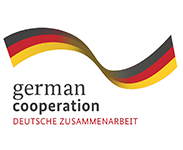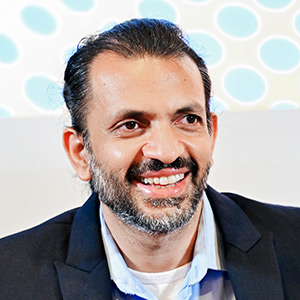Earlier this month, we concluded the Mobile 360 APAC conference, an invitation-only in person event in Singapore on 2 and 3 August 2022. The overall event was themed ‘Building Digital Nations’, largely focusing on how governments in the Asia Pacific region are harnessing the power of technology to grow economies and deliver new innovative services to connect communities.
At this event, the GSMA Mobile Innovation Hub (MIH) led the session ‘Building Climate Resilient Digital Nations’ bringing together thought leaders, industry practitioners and project implementers to initiate a conversation on how digital technology can play a vital role in supporting national governments’ work towards their climate mitigation and adaptation targets; taking the efforts that the Mobile Innovation Hub team has initiated in Indonesia in partnership with the Deutsche Gesellschaft für Internationale Zusammenarbeit (GIZ) GmbH as a catalyst.
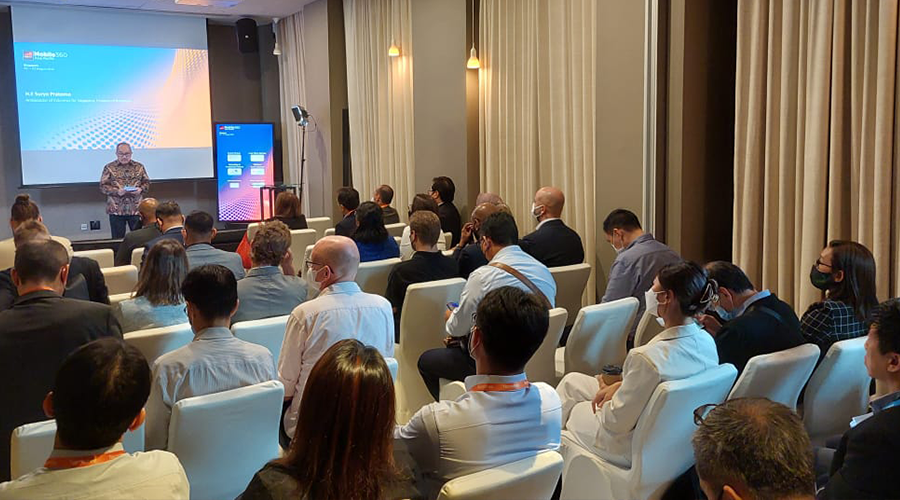
His Excellency Suryo Pratomo, the Ambassador of Indonesia for Singapore set the stage for this discussion in his opening remarks, providing the high-level context on challenges Indonesia is facing due to climate change and sharing a bit about the national plans to mitigate these challenges. He emphasised on the importance of collaboration and working together to make these plans achievable while giving some examples of how mobile and digital technology can be used to strengthen the climate goals of the country by connecting people to greener solutions.
Asri Hassan, the Chief Corporate Officer of Axiata Group, then continued this message by sharing the Net Zero journey the group has embarked on, and how that journey is about bringing together individual commitments towards a collective goal of advancing Asia in a climate-friendly way.
Rahul Shah, the Director of Mobile for Development for APAC region, moderated the panel discussion that took a more exploratory view of Indonesia’s current context on using mobile enabled solutions to address climate challenges. The panel discussion started with the summary video that provided a sneak preview into the recent MIH landscaping study in Indonesia documenting the current initiatives using mobile-enabled technology for climate solutions, identifying the barriers for scaling and mapping the opportunities to improve this in the coming years.
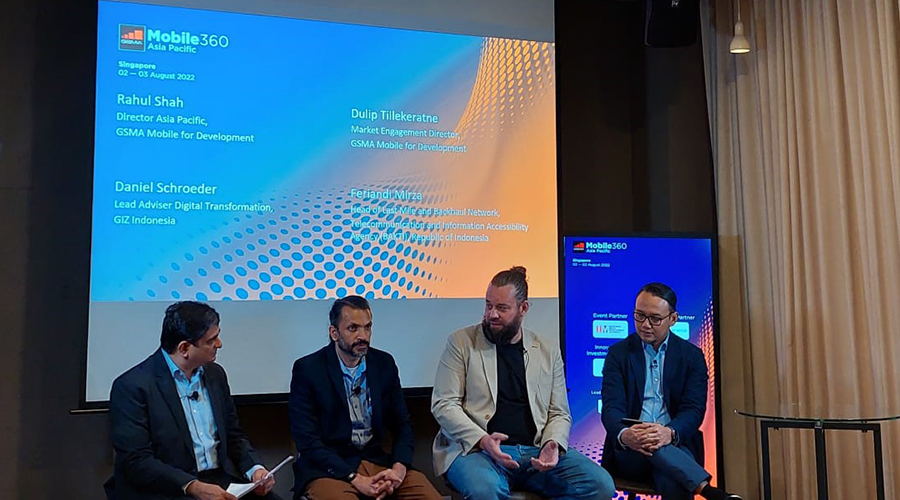
Dulip Tillekeratne, the Market Engagement Director for Mobile Innovation Hub, shared more details about this study, while highlighting the ways in which Mobile Operators can play a role in climate mitigation and adaptation. He also shared GSMA’s efforts in 2021 in launching an Innovation Fund round to support innovations in climate resilience and adaptation.
Daniel Schroeder, the Lead Adviser Digital Transformation Indonesia, provided an overview about the Digital Transformation in Indonesia and highlighted how the GIZ is increasingly focusing on using digital solutions in bridging gaps in development, especially in addressing climate challenges and how they bring public and private sector collaborations in the process.
Feriandi Mirza, the Head of Last Mile and Backhaul Networks of the Telecommunication and Information Accessibility Agency (BAKTI) Indonesia, shared the critical role played by the Indonesian government to extend the last mile coverage not only by developing mobile infrastructure in the remotest part of the country, but also creating an ecosystem to enable first time users of digital technology to be onboarded in using the technology solutions as well.
There were several engaging questions from the audience which emphasised the importance of user centric innovations and pointed out the importance of measuring the impact and identifying how digital tech initiatives are creating climate impact. Panellists agreed on the importance of these questions sharing some of the efforts already in place under the Mobile Innovation Hub in Indonesia and asked the audience to keep out an eye on the publications and alerts in the next few months.
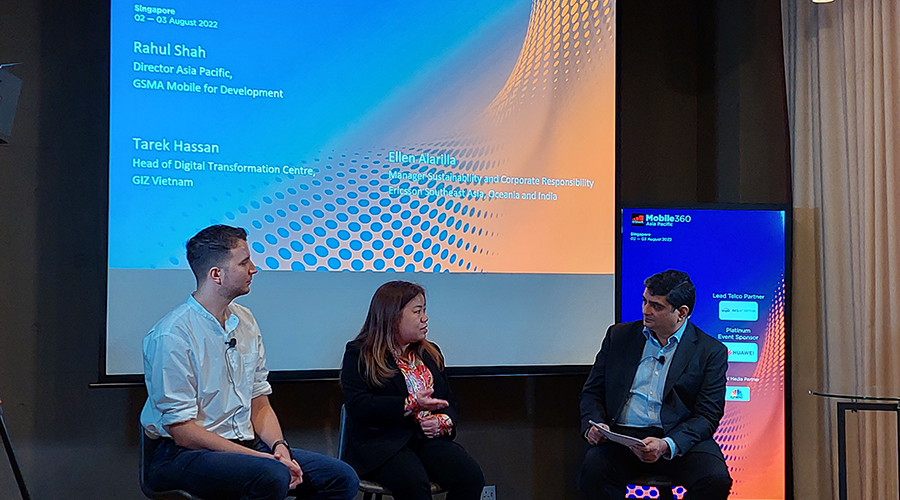
The panel discussion was followed by a fireside chat that took these insights from Indonesia to the wider region with Ellen Alarilla, the Sustainability and Corporate Responsibility for Ericsson, and Tarek Hassan, the Head of the GIZ Digital Transformation Center in Vietnam. The speakers highlighted some of the similarities across the region that make the climate challenge as well as the potential digital solutions realistic for the entire region. It was interesting to hear from Tarek that there were fewer climate focused innovations in Vietnam, and in many cases, what we are still seeing is other types of innovations and solutions being used to address climate challenges. Meanwhile, Ellen shared some really interesting insights from the Ericsson Connected Mangroves project and their learnings in Malaysia as well as the Philippines.
Rahul Shah provided the concluding remarks inviting the audience to keep engaging with the expert panel while looking out for more updates from the Mobile Innovation Hub in Indonesia. He raised the collective voice in thanking the German Federal Ministry for Economic Cooperation and Development (BMZ) for supporting these impactful initiatives in the region.
Watch the recorded session here.
The Mobile Innovation Hub is funded by the German Federal Ministry for Economic Cooperation and Development (BMZ), and supported by the GSMA and its members.
